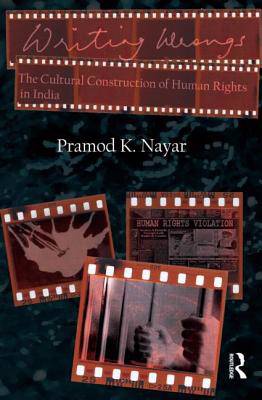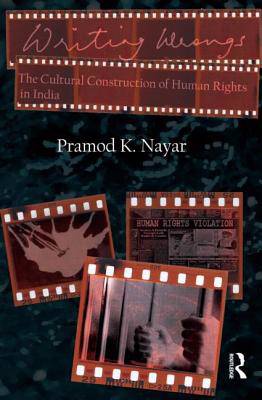
- Retrait gratuit dans votre magasin Club
- 7.000.000 titres dans notre catalogue
- Payer en toute sécurité
- Toujours un magasin près de chez vous
- Retrait gratuit dans votre magasin Club
- 7.000.0000 titres dans notre catalogue
- Payer en toute sécurité
- Toujours un magasin près de chez vous
Writing Wrongs
The Cultural Construction of Human Rights in India
Pramod K NayarDescription
This book examines the 'cultural apparatus' of Human Rights in India today. It unravels discourses of victimhood, oppression, suffering and witnessing through a study of autobiographies, memoirs, reportage and media coverage, and documentaries.
Moving across multiple media and genres for their representations of Dalits, riot victims, prisoners, abused and abandoned women and children, examining the formal properties of victim texts for their documentation of trauma, and analyzing the role of the sympathetic imagination, Writing Wrongs inaugurates a whole new field in literary-cultural studies by focusing on the narratives that build the culture of Human Rights. It argues for taking this cultural apparatus as essential to the political and legal dimensions of Human Rights.
The book emphasizes the need for an ethical turn to literary-cultural studies and a cultural turn to Human Rights studies, arguing that a public culture of Human Rights has a key role to play in revitalizing civil society and its institutions. It will be of interest to Human Rights scholars and activists, and those in political science, sociology, literary and cultural studies, narrative theory and psychology.
Spécifications
Parties prenantes
- Auteur(s) :
- Editeur:
Contenu
- Nombre de pages :
- 216
- Langue:
- Anglais
Caractéristiques
- EAN:
- 9780415529082
- Date de parution :
- 06-03-12
- Format:
- Livre relié
- Format numérique:
- Genaaid
- Dimensions :
- 140 mm x 216 mm
- Poids :
- 399 g

Les avis
Nous publions uniquement les avis qui respectent les conditions requises. Consultez nos conditions pour les avis.






